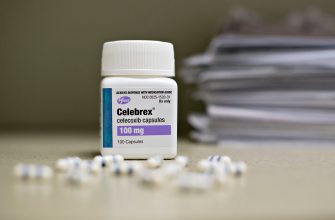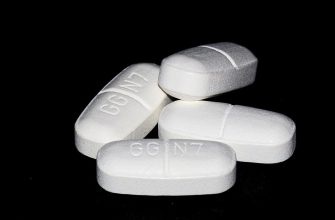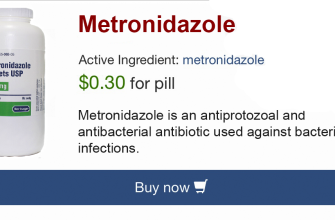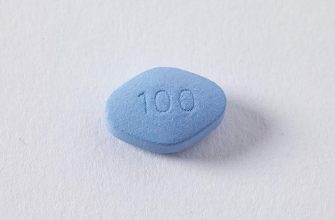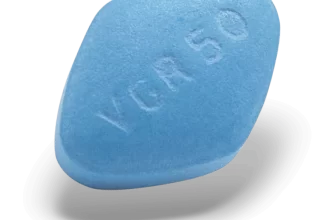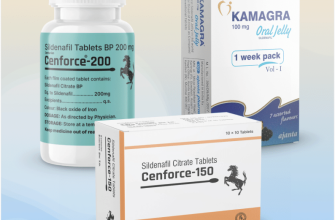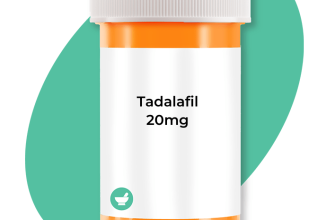Older adults considering generic Accutane should consult their healthcare provider to evaluate their specific needs. This medication, often prescribed for severe acne, can significantly improve skin condition when used correctly. A dermatologist may recommend a treatment plan that considers other health factors and medications to ensure safety and effectiveness.
Generic Accutane contains isotretinoin, which targets the root causes of acne by reducing oil production and preventing clogged pores. It’s essential for older adults to understand the potential side effects, including dry skin, fatigue, and mood changes. Regular follow-ups with healthcare professionals can help monitor these effects and adjust dosages as necessary.
Hydration becomes crucial during treatment. Older adults should maintain a robust skincare routine that includes moisturizers and lip balms to combat dryness. Additionally, staying informed about dietary adjustments and maintaining a balanced diet can aid in minimizing adverse effects. Engaging in open discussions with a healthcare provider about progress and any concerns is key to a successful treatment journey.
- Generic Accutane for Older Adults
- Understanding Generic Accutane and Its Use in Older Adults
- Monitoring During Treatment
- Considerations for Older Adults
- Common Skin Conditions Treated with Generic Accutane
- Dosage Guidelines for Older Adults Using Generic Accutane
- Recommended Dosage Adjustment
- Treatment Duration
- Potential Side Effects and Risks for Older Adults
- Cardiovascular Concerns
- Mood Changes and Depression
- Monitoring and Management of Side Effects in Older Patients
- Drug Interactions: What Older Adults Should Be Aware Of
- Patient Success Stories: Older Adults Who Benefited from Generic Accutane
- Consultation and Follow-Up: Best Practices for Physicians
Generic Accutane for Older Adults
Older adults can safely use generic Accutane, but specific precautions are necessary. It’s vital to consult with a healthcare provider to assess individual health conditions and potential side effects.
Consider the following recommendations:
- Discuss any pre-existing health issues, including liver disease or mood disorders, before starting treatment.
- Conduct routine blood tests to monitor liver function and cholesterol levels throughout the treatment.
- Maintain communication with the healthcare team regarding any new symptoms or concerns during the course.
Older adults may experience different side effects compared to younger patients. Common side effects include:
- Dry skin and mucous membranes
- Increased sun sensitivity
- Fatigue and potential mood changes
Staying hydrated and using moisturizers can help alleviate some of these issues. Regular skin checks are advisable to monitor for any skin changes.
Women of childbearing age must use effective birth control during treatment due to the high risk of birth defects associated with Accutane. Discuss contraceptive options with a healthcare provider.
Staying informed and proactive can significantly enhance the treatment experience for older adults using generic Accutane. Focus on maintaining overall health and wellness while undergoing therapy.
Understanding Generic Accutane and Its Use in Older Adults
Older adults seeking treatment for severe acne may benefit from generic Accutane, also known as isotretinoin. This medication targets the underlying causes of acne by reducing sebum production and preventing clogged pores. Generic versions offer a cost-effective alternative while maintaining the same active ingredient as the brand-name product.
Before starting treatment, consult with a healthcare provider to assess potential benefits and risks. Isotretinoin can cause side effects, including dry skin, chapped lips, and increased sensitivity to sunlight. Older adults may also experience more pronounced effects due to age-related changes in skin and metabolism.
Monitoring During Treatment
Regular follow-up appointments are vital for monitoring side effects and making necessary dosage adjustments. Blood tests may be required to check liver function and lipid levels, as isotretinoin can impact these. Hydration and skin care should be emphasized to manage dryness effectively.
Considerations for Older Adults
Older adults often have comorbidities or take medications that might interact with isotretinoin. Discuss any existing conditions and current medications with a healthcare provider to ensure a safe treatment plan. Those with a history of liver issues, high cholesterol, or heart disease should proceed cautiously. Always adhere to prescribed guidelines regarding pregnancy prevention, as isotretinoin is highly teratogenic.
In conclusion, generic Accutane can be an effective treatment for older adults grappling with severe acne when used responsibly under medical supervision. Individualized care and thorough monitoring can help maximize benefits while minimizing risks.
Common Skin Conditions Treated with Generic Accutane
Generic Accutane is often prescribed for severe cases of acne that do not respond to other treatments. This medication targets cystic acne, characterized by large, painful lumps beneath the skin. By reducing the size and activity of sebaceous glands, it minimizes oil production and helps clear up breakouts.
Another condition effectively treated with Generic Accutane is nodular acne. These persistent and inflamed nodules can cause scarring. By significantly reducing inflammation and preventing new lesions, the treatment improves both the appearance and health of the skin.
Generic Accutane also addresses acneiform eruptions, which may resemble acne but result from medications or other underlying issues. This medication can help normalize skin conditions resulting from hormonal changes or excessive oil production, effectively alleviating symptoms.
For individuals dealing with severe forms of rosacea, particularly with associated acne-like breakouts, Generic Accutane may provide relief. By decreasing the prominence of blood vessels and reducing skin oiliness, it can improve the overall texture and tone of the skin.
Lastly, Generic Accutane shows promise in treating certain keratinization disorders, where skin cells proliferate excessively. This treatment helps regulate skin cell turnover and reduces the thickening of the skin, leading to smoother and more even-toned skin.
Dosage Guidelines for Older Adults Using Generic Accutane
For older adults, the typical starting dosage of Generic Accutane (isotretinoin) is 0.5 mg per kilogram of body weight per day. This initial dose is usually adjusted based on tolerance and response to the medication.
Recommended Dosage Adjustment
Monitor the following aspects to determine if adjustments are necessary:
- If the initial dose leads to significant side effects, consider reducing the dosage to 0.25 mg/kg/day.
- Check liver function regularly. If enzyme levels spike, decrease the dosage or pause treatment.
- Assess lipid levels, particularly triglycerides. Elevated levels may necessitate a dosage reduction.
- Side effects such as dry skin or mucous membranes often resolve with dosage adjustments.
Treatment Duration
Typically, a treatment course lasts 15 to 20 weeks. After this period, evaluate the outcome:
- Consider re-evaluation of symptoms and side effects to decide if additional treatment is warranted.
- Assess improvement in skin condition to determine if maintenance therapy is necessary.
Consult a healthcare provider before making any dosage changes. Regular follow-up appointments are essential to monitor progress and side effects effectively.
Potential Side Effects and Risks for Older Adults
Older adults should closely monitor for potential side effects when taking generic Accutane. Common risks include dry skin, chapped lips, and dry eyes. These symptoms can be uncomfortable and may require additional moisturizing treatments. It’s crucial to maintain hydration and use gentle skincare products to alleviate dryness.
Cardiovascular Concerns
Some older patients might experience elevated cholesterol and triglyceride levels while on Accutane. Regular blood tests are advisable to track these changes. Engaging in a healthy diet and regular exercise can help manage these levels effectively.
Mood Changes and Depression
Older adults may experience mood alterations or depression. Monitoring mental health during treatment is vital. If significant changes occur, consulting a healthcare provider is imperative to discuss these concerns and consider adjustments to the treatment plan.
Monitoring and Management of Side Effects in Older Patients
Regular monitoring of side effects is critical for older adults taking generic Accutane. Schedule frequent follow-up appointments to assess skin changes, liver function, and cholesterol levels.
- Skin Assessments: Conduct monthly evaluations for skin dryness, irritation, or peeling. Recommend hydrating lotions and non-comedogenic products to mitigate these effects.
- Blood Tests: Obtain liver function tests and lipid profiles every 4 to 6 weeks after starting treatment. Adjust dosage based on results, especially if elevated liver enzymes or cholesterol levels are detected.
- Mood Monitoring: Discuss mental health openly, as Accutane may affect mood. Encourage patients to report any signs of depression or anxiety immediately.
Educate patients about potential side effects such as joint pain, which can be more pronounced in older adults. Suggest low-impact exercises to manage discomfort while maintaining mobility.
- Hydration: Advise patients to drink plenty of water to reduce the risk of dehydration, especially during warmer months.
- Avoiding Sun Exposure: Recommend the use of sunscreen and protective clothing to prevent heightened sensitivity caused by Accutane.
Support for older adults should include caregiver involvement. Discuss treatment plans with caregivers to ensure they understand the importance of monitoring and can assist in observing any changes.
Document all observations and communicate any concerns. A proactive approach will help manage side effects effectively, ensuring the patient’s safety and comfort throughout the treatment process.
Drug Interactions: What Older Adults Should Be Aware Of
Older adults should review their current medications with a healthcare provider before starting generic Accutane. Certain drugs can interact negatively with isotretinoin, increasing the risk of side effects or decreasing therapeutic effects.
Avoid using isotretinoin with the following classifications of medications:
| Medication Type | Examples | Potential Interaction |
|---|---|---|
| Vitamin A Supplements | Retinol, Cod Liver Oil | Increased risk of hypervitaminosis A |
| Antibiotics | Tetracycline, Doxycycline | Increased risk of headache and increased intracranial pressure |
| Hormonal Contraceptives | Birth Control Pills | Reduced effectiveness due to altered metabolism |
| Anticonvulsants | Phenytoin, Carbamazepine | Potential for liver toxicity |
Monitor for symptoms such as dizziness, headaches, or increased mood changes when taking concurrent medications. Regular check-ins with a healthcare provider enhance safety. Blood tests may also be necessary to assess liver function and cholesterol levels during isotretinoin therapy, especially for older adults.
If experiencing any unusual symptoms or side effects, contact a healthcare professional immediately. Clear communication about all medications, including over-the-counter products and supplements, can help prevent complications.
Patient Success Stories: Older Adults Who Benefited from Generic Accutane
Many older adults have found relief from stubborn acne through the use of generic Accutane. For instance, Jane, a 63-year-old retiree, struggled with acne lesions that persisted from her teenage years. After starting treatment, she saw a significant reduction in breakouts within just a few months. Her confidence soared as she could finally enjoy social gatherings without feeling self-conscious about her skin.
Another inspiring story comes from Tom, who at 55, faced acne flare-ups that affected his quality of life. He began taking generic Accutane as part of a carefully monitored treatment plan. Within weeks, he noticed smoother skin and fewer blemishes. Tom reports feeling rejuvenated, as if he had regained a part of his youth, allowing him to partake in community events and engage more actively with friends.
Mary’s experience is equally compelling. At 70, she decided to try generic Accutane after years of trying various topical treatments. After consultations with her dermatologist, she started her course and quickly observed a dramatic improvement in her skin. Mary now shares her experience in support groups, encouraging others to consider the benefits of this medication.
These success stories highlight the potential for older adults to achieve clearer skin with generic Accutane. Consulting with a healthcare professional is crucial to ensure safe usage and monitor any side effects. Each patient’s experience may vary, but these examples show that it is possible to overcome long-standing acne challenges at any age.
Consultation and Follow-Up: Best Practices for Physicians
Begin consultations by emphasizing the importance of a thorough medical history. Assess previous treatments and current medications, focusing on potential interactions with isotretinoin. Include mental health assessments, as emotional well-being significantly impacts treatment outcomes.
Communicate the specific effects and side effects of generic Accutane. Discuss common concerns such as dry skin, mood changes, and the need for regular laboratory tests to monitor liver function and lipid levels. A clear explanation reassures patients and encourages adherence to the treatment plan.
| Follow-Up Schedule | Purpose |
|---|---|
| 1 month | Assess side effects and monitor lab results |
| 3 months | Evaluate treatment response and adjust dosage if necessary |
| 6 months | Final assessment before completing the course |
Encourage patients to contact your office with any concerns between appointments. Establish open lines of communication to address issues promptly. This practice fosters trust and improves compliance.
Utilize patient education materials that outline treatment expectations, lifestyle modifications, and the importance of sun protection during therapy. Visual aids can enhance understanding and retention of information.
For older adults, consider collaborating with caregivers or family members. Their involvement can enhance the patient’s support system and improve adherence to recommendations.
Regularly review ongoing therapies and reassess the need for concomitant treatments to ensure safe and effective management of any additional health conditions. Tailoring the approach to individual needs maximizes the benefits of therapy.


